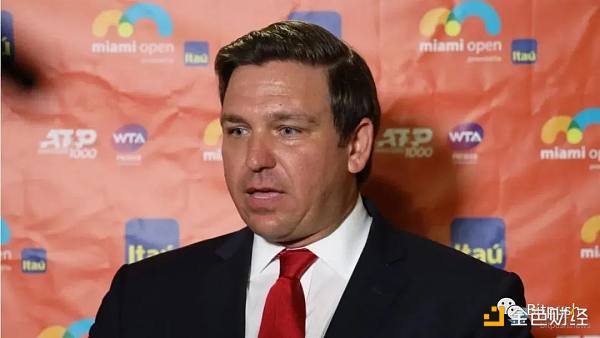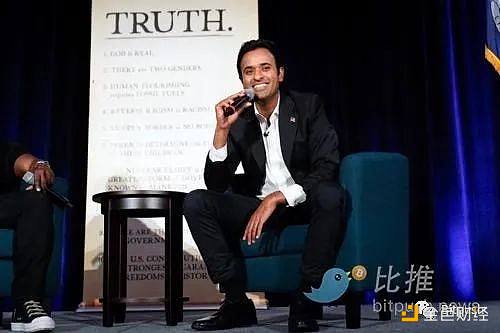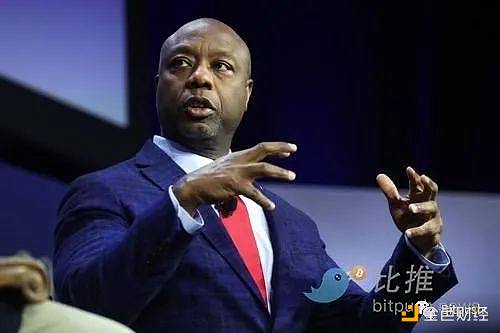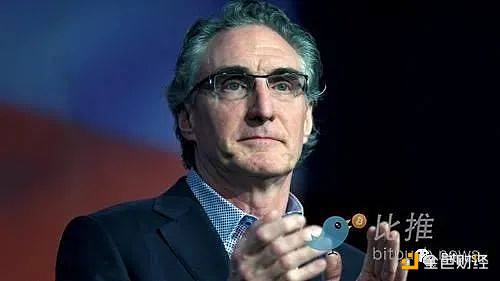The first debate of the Republican primary ended. Which candidates are friendly towards encryption?
Key question Which GOP candidates support encryption?The first debate of the eight Republican presidential candidates in the United States ended on Wednesday evening (August 23rd), marking the first major event before the national election next year. So, what is the candidates’ stance on cryptocurrencies?
Donald Trump

Former US President and Republican frontrunner Donald Trump was absent from the debate.
According to previous reports by LianGuai, financial disclosure documents submitted to the US Government Ethics Office on August 15th showed that Trump’s Ethereum wallet holds over $2.8 million in cryptocurrencies. The disclosure also revealed that Trump earned nearly $4.9 million in licensing fees from a series of NFTs launched by his campaign team.
- Wu’s Weekly Selection Tornado Cash Co-founder Arrested, HashKey to Open Retail Investors Next Week, and Top 10 News (0819-0825)
- Market Analysis There will be a sharp decline before the next rise, a bear market is approaching.
- The former secretary of the Fuzhou Municipal Party Committee, who supported mining, has been sentenced to life imprisonment, but it has also left us with many questions.
In 2019, Trump tweeted that he was “not a fan” of Bitcoin and other cryptocurrencies, and he supported the US dollar.
The size of Trump’s cryptocurrency holdings almost qualifies him as a crypto “whale,” which is an ironic twist for someone who has described cryptocurrencies as a “scam” and “very dangerous.”
Ron DeSantis, Governor of Florida

Florida Governor Ron DeSantis expressed support for Bitcoin from the first day he became a candidate. During the opening ceremony of a campaign event with Elon Musk, DeSantis said that if President Joe Biden is reelected, Bitcoin may be “eliminated.”
“You have every right to use Bitcoin. The only reason those people in Washington don’t like it is because they can’t control it,” DeSantis said.
Ron DeSantis has also criticized central bank digital currencies (CBDC). He referred to this technology as a “massive transfer of power from individual consumers to central institutions” and took action to prevent the launch of a digital dollar in Florida.
Vivek Ramaswamy, Entrepreneur

Vivek Ramaswamy, a 38-year-old biotech entrepreneur, is also a supporter of cryptocurrencies.
Vivek Ramaswamy challenged Florida Governor Ron DeSantis in the Republican primary, vying for the second position in the Republican primary. He is one of the wealthiest individuals under 40 in the United States. According to Forbes, Vivek briefly became a billionaire, but the stock market downturn reduced his wealth to slightly over $950 million.
He made a statement at the Miami Bitcoin Conference: “Thomas Jefferson, if he were still alive, would also mine Bitcoin. I have no doubt about it. It represents the American spirit and is inherent in our nature as human beings.”
Ramaswamy also stated that Bitcoin is not a security, criticized the Federal Reserve for trying to play the “god of finance,” criticized CBDCs, and criticized the Biden administration’s proposal to impose a 30% consumption tax on cryptocurrency mining.
He said one of his main goals in running for president is to reform the Federal Reserve and hopes that donors to his campaign will contribute Bitcoin to get him on the debate stage and make 2024 a “referendum on sound money in America.”
Ramaswamy said in a May interview with CoinDesk that he is the only candidate with enough knowledge to talk about Bitcoin intelligently. He also accused DeSantis of taking positions that support Bitcoin and oppose CBDCs in many ways.
Earlier this week, Ramaswamy received an endorsement from Elon Musk, who called him a “very promising candidate.”
South Carolina Senator Tim Scott

South Carolina Senator Tim Scott is a member of the Senate Banking Innovation Core Group, which discusses issues such as digital assets, stablecoins, and CBDCs, and he supports cryptocurrency regulation.
Tim Scott is also a co-sponsor of the “Access to Capital for All Investors Act,” which failed last year but attempted to define digital assets as investments and modify existing rules regarding qualified investors.
In a Senate Banking Committee hearing in February specifically discussing digital assets, he criticized SEC Chairman Gary Gensler’s decision to be absent and questioned whether the SEC was “asleep at the wheel” for failing to take action against FTX, which collapsed in November last year.
He said, “The American people deserve to know why nothing was done before FTX collapsed and how millions of hard-earned dollars in America went up in smoke.”
North Dakota Governor Doug Burgum

North Dakota Governor Doug Burgum is not a vocal supporter of Bitcoin in his campaign, but he has sent friendly signals to the cryptocurrency industry multiple times in the past year, noting that the state has become a cryptocurrency mining center when commenting on the construction of a data center in North Dakota last year.
He said, “This significant investment in North Dakota will further solidify our state’s growing reputation as a data center and cryptocurrency mining hub, and we have the capacity to support data centers and other energy-intensive industries.”
Candidates with unclear positions
Several candidates have not made any public comments on cryptocurrency or Bitcoin, including former New Jersey Governor Chris Christie, former United Nations Ambassador Nikki Haley, former Arkansas Governor Asa Hutchinson, and former Vice President Mike Pence.
Miami Mayor unable to participate in the debate
According to ABC Action News, Miami Mayor Francis Suarez, who has been supportive of cryptocurrency, admitted yesterday that he is not eligible to participate in the debate and falsely promoted himself as qualified a week ago.
In an interview with The Block, Suarez said that if elected president, he might pay his salary in Bitcoin, and he has already done so during his tenure as Miami mayor. Additionally, the candidate accepts Bitcoin transactions.
He said, “I believe it is very important for the president to encourage innovation, and I do support alternative assets such as cryptocurrencies. I think they are very beneficial for a country like the United States.”
We will continue to update Blocking; if you have any questions or suggestions, please contact us!
Was this article helpful?
93 out of 132 found this helpful
Related articles
- The first debate of the Republican primary ended. Which candidates are friendly to cryptocurrencies?
- Is there really market manipulation by crypto market makers?
- Market Analysis A sharp drop is expected before the next rise, and a bear market is imminent.
- Can BTC hold the $26,000 support level? $1.9 billion BTC monthly options will tell you.
- Due to macroeconomic factors, the inflow of risk capital into cryptocurrencies further declined.
- Why did the cryptocurrency market decline this week?
- Returning to ‘Common Sense’ Rationally Examining the ‘Truth’ of Crypto






